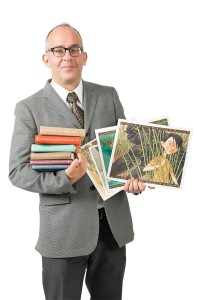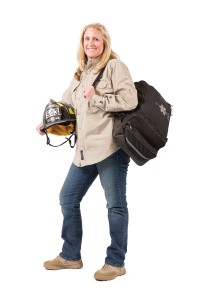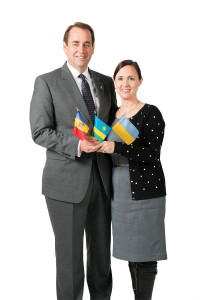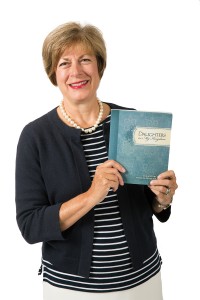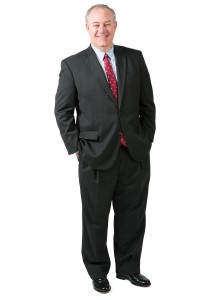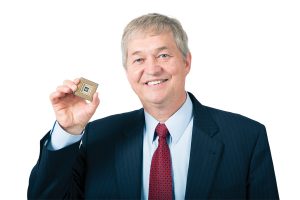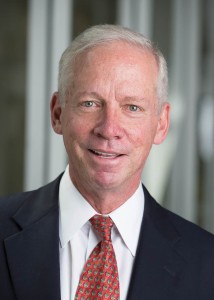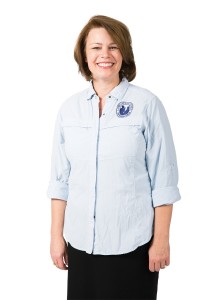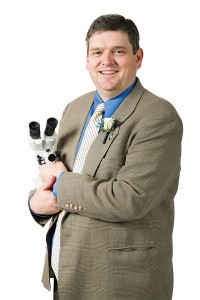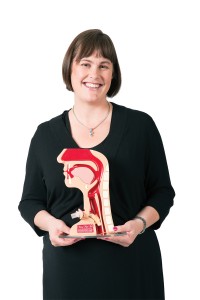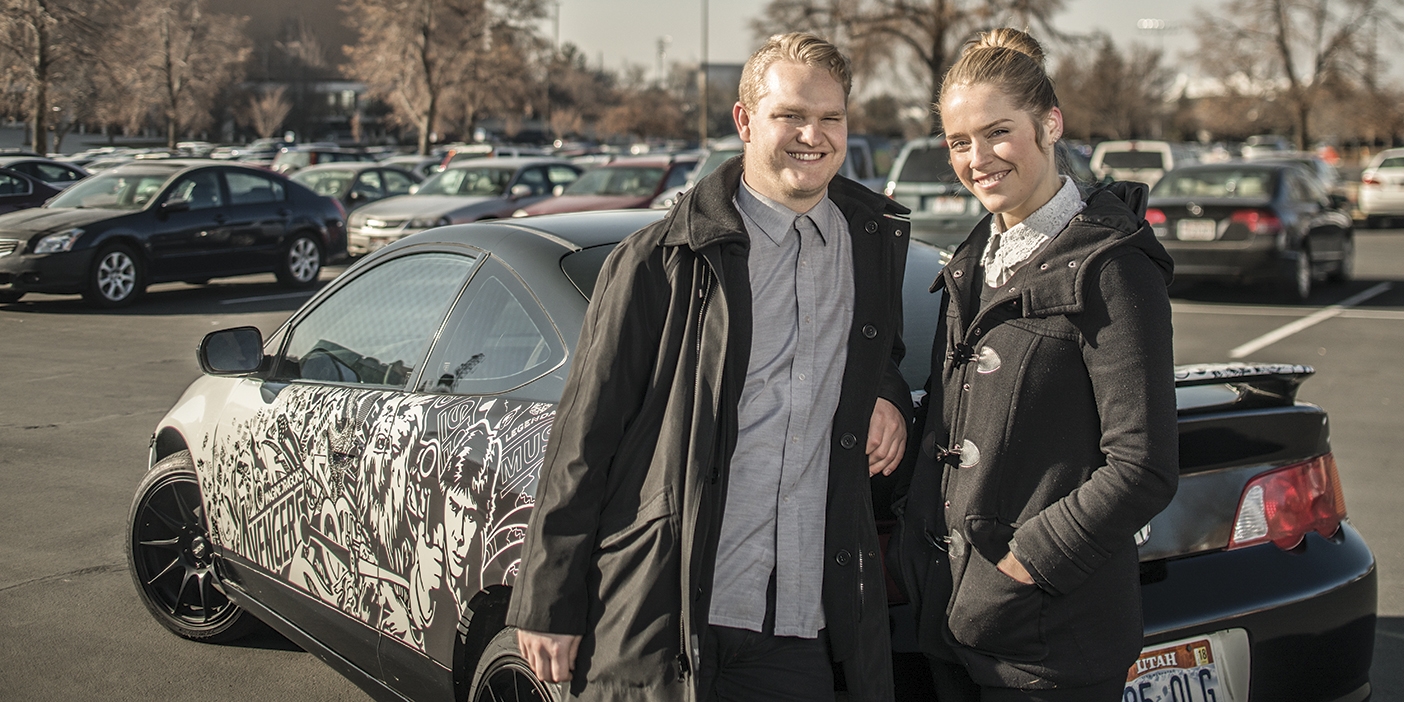In excerpts from interviews and lectures, Homecoming 2014’s 11 Alumni Achievement Award recipients offer up success secrets, share insights on life lessons, and reflect on their time at BYU.
FINE ARTS AND COMMUNICATIONS
Brett L. Helquist (BFA ’93), Brooklyn, N.Y.
Children’s book illustrator whose credits include
A Series of Unfortunate Events
On getting started: “Just put something down on paper. . . . It’s probably bad, most likely it is, but then you’ve got something, you’ve put something down, you’ve passed that anxiety.”
BYU nostalgia: “I loved going with friends to football games. I miss that probably most of all.”
Success secret: “Every day, doing a little something to push my career forward. . . . It was no big magical moment or big thing that I did; it was just literally chipping away at it over a few years.”
Professional rewards: “When [teachers] tell me that one of my books helped them get a child who was reluctant to read . . . [to start] reading.”
NURSING
Susan Mathis Kochevar (AS ’83, BS ’87), Henderson, Nev.
School nurse; ER, trauma, and flight nurse; fire department
and Special Forces instructor
Lesson learned at BYU: “To be true to what I believe.”
Worst BYU grade: Statistics was “the only C of my entire college career.
I was working night shifts in Salt Lake and going to school full-time at BYU and trying to get my husband to propose to me—so it’s his fault.”
Success secret: “The golden rule: . . . to be the kind of nurse that I would want someone to be to me and the kind of instructor that I enjoy learning from.”
Driving force: “The fear of missing out: FOMO!”
Speaker notes: “Sometimes don’t do [anything]; just stand there. Just be human with someone else—that is the healer’s art.”
LAW SCHOOL
David O. (BA ’88, JD ’91) and Chelom Eastwood Leavitt (BS ’88, JD ’92, MS ’10), State College, Pa.
Leavitt Firm partners and founders of the Leavitt Institute
or International Development
How we met: David: “We met the very first day of law school, very first class. . . . I saw her and immediately shifted priorities from law school to Chelom.”
Rule of law—at home: Chelom: “Our kids often have contracts on their door indicating who can come in or out, what kind of behavior is expected. Our kids act more like lawyers than we do.”
Speaker notes: Chelom: “Thorny issues are important to tackle, and failing sometimes humbles us and gives us the right perspective. . . . It actually can refine us into something far more than we ever could have been without the failure.”
David: “Service expands us. It makes us into people that we didn’t know we could become.”
FAMILY, HOME, AND SOCIAL SCIENCES
Julie Bangerter Beck (BS ’81), Alpine, Utah
Former Relief Society general president
Educational inspiration: “I really wanted my children to have a mother who was a university graduate because I wanted that to be their goal. I knew I couldn’t expect it of them if I didn’t do it myself. . . . My husband and I made that joint sacrifice together. It was hard, but we did it.”
Recent hobby: “Riding in the mountains with a Jeep full of grandchildren is my favorite thing.”
On multiplying: “The Lord’s way is to be fruitful. We should be multiplying our families, multiplying our talents and abilities, multiplying the good in the world.”
Speaker notes: “There’s always a way out of a problem, and two heads on it are better than one—and one of those heads better be the Lord’s.”
PHYSICAL AND MATHEMATICAL SCIENCES
Gregory F. Hebertson (BS ’91, MS ’94), The Woodlands, Texas
Senior vice president of exploration, Midstates Petroleum
Success secret: “I’m always looking ahead five to seven years down the road and picking out where I want to be personally and professionally.”
Changing course: After finishing his bachelor’s degree, Hebertson shadowed a law student for a day. “He read case files for four hours . . . and [I] thought, ‘I could be outdoors studying geology instead!’”
Special skill: “My kids thought I could distinguish different-colored M&M’s by tasting them.
I would close my eyes and one of my kids would put an M&M in my mouth. . . . My wife or someone would give me hand signals to indicate the color. [We] pulled this off for years.”
Speaker notes: “Find something you are passionate about, take control of your destiny, . . . and surround yourself by people who support you.”
ENGINEERING AND TECHNOLOGY
Richard B. Brown (BS, MS ’76), Salt Lake City
Dean of the University of Utah College of Engineering
Why engineering? “The exciting part of it is that you get to bring creativity to solve problems and invent things that have never been thought of before.”
Professional rewards: Brown finds special satisfaction in solving health concerns through technology—from smartphone-enabled water testing to downsized cochlear implants—and he has launched four tech companies. “It’s hard to compete with the rush you get from conceiving an invention, working through the long process of making it real, . . . and seeing it turn into a product that is making life better for people.”
Success secret: “You have to be trustworthy, honest. . . . My father had a reputation for integrity that was far and wide. I [have] tried to live that way myself.”
MARRIOTT SCHOOL
A. Kim Smith (BA ’77, MBA ’79), Provo
Peery Institute of Financial Services managing director,
BYU Department of Finance associate professor
Lesson learned at BYU: “I learned to always be a student, . . . to stay as curious and learn as much as I possibly can.”
Changing course: “I wanted to be a pediatrician.” But after accompanying his pediatrician dad to the hospital, “I realized . . . I liked the helping people part, but pediatricians looked at mucus and bowel movements, and I thought, no thanks!”
Mountain to climb: Developing a process in BYU’s Department of Finance “that allows us to put our students in the best companies in the world. We’ve made good progress so far, but there’s still wood to chop.”
Speaker notes: “It’s great to save money, but don’t save all your money. . . . Plan for the future and have fun along the way.”
HUMANITIES
Sharon L. Eubank (BA ’88), North Salt Lake, Utah
Director of Humanitarian Services and LDS Charities
Worst BYU grade: An introductory economics class, “which I did not need for anything. . . . A guy in my family home evening group tutored me. With his tutoring, I got a D+. And I was thrilled to get the D+.”
Lesson learned at BYU: “There are no artificial barriers between kinds of knowledge in life; secular [and spiritual] knowledge can be blended because truth is one great whole.”
Success secret: Ask follow-up questions. “People often . . . want to know how committed are you, how closely are you listening. When you ask a follow-up question, that’s when you get real information.”
Long-term career goal: “I really want to do something that will relieve suffering for large amounts of people in a real, lasting way. That’s my dream in life.”
LIFE SCIENCES
Nathan J. Cherrington (BS ’93), Oro Valley, Ariz.
University of Arizona College of Pharmacy professor
and 1885 Distinguished Scholar
Favorite BYU classes: “I met my wife in Biology 200. We started dating in environmental science. We got engaged in a physiology class.”
Worst BYU grade: “C is for chemistry. I got a C+ in organic chemistry.”
Success secret: “Make your deadlines. . . . If you don’t have a deadline, set a deadline for yourself.”
Driving force: “I am far more interested in doing good than I am in continuing any personal success. . . . I feel a tremendous sense of responsibility and willingness to be of service.”
EDUCATION
Cynthia Wheeler Sutton (BS ’02, MS ’04), Centerville, Utah
University of Utah hospital therapy supervisor
and lead speech language pathologist
Secret skill: “I can talk like Chewbacca.”
BYU nostalgia: “I was in the [Cougar] Marching Band. . . . Being a part of the bowl games and the excitement . . . was definitely a huge highlight of my BYU career.”
Professional rewards: “What I do doesn’t affect stock prices. It doesn’t affect the global economy. . . . But I know each day that I make a difference to a family member or individual who couldn’t talk before.”
Speaker notes: “There’s another side of disordered communication that . . . [is] getting worse and worse. . . . What I’m talking about is how we communicate with and treat others. . . . We tend to tear down instead of lift up, and to me that’s disordered communication.”
Nominate an Awesome Alum
In addition to the Alumni Achievement Awards, which are selected by BYU’s colleges, each Homecoming BYU Alumni honors people who have given outstanding service. Nominations for the following 2015 awards will be accepted through Feb. 28:
• The Distinguished Service Award recognizes BYU alumni who have given extraordinary service to BYU, their profession, community, nation, or church.
• The Emeriti Distinguished Service Award is given to alumni 70 years or older who have performed significant service in their mature years.
• The Young Alumni Distinguished Service Award honors outstanding alumni 40 years or younger who have offered notable service in several areas.
• The Service to Family Award recognizes alumni who have rendered exceptional service to families in their home, community, or nation. This award may be given to an individual, a couple, or a family.
• The Honorary Alumni Award is given to non-alumni who have given significant service to the school.
web: To nominate someone for an award, visit more.byu.edu/homecomingawards.







